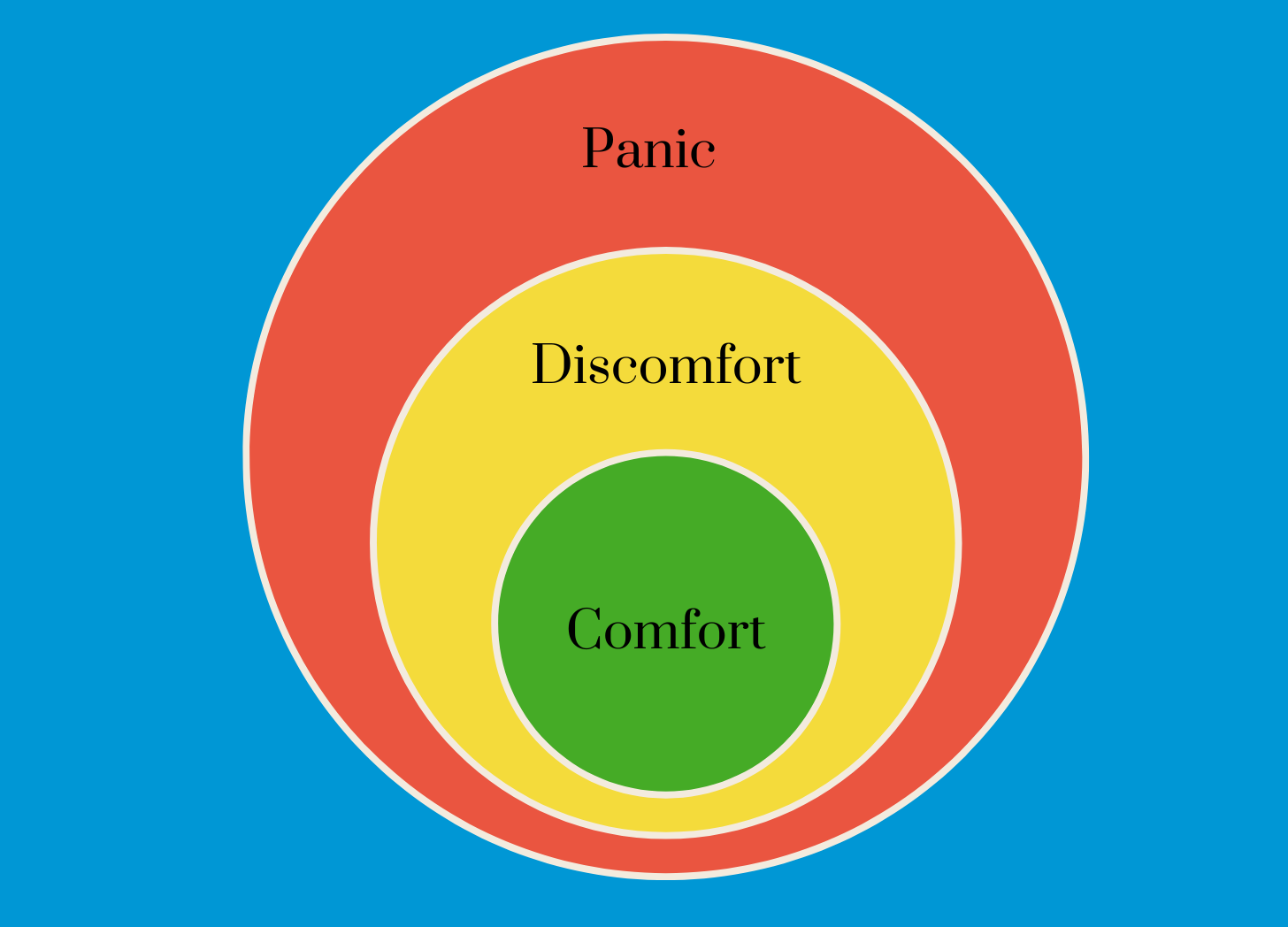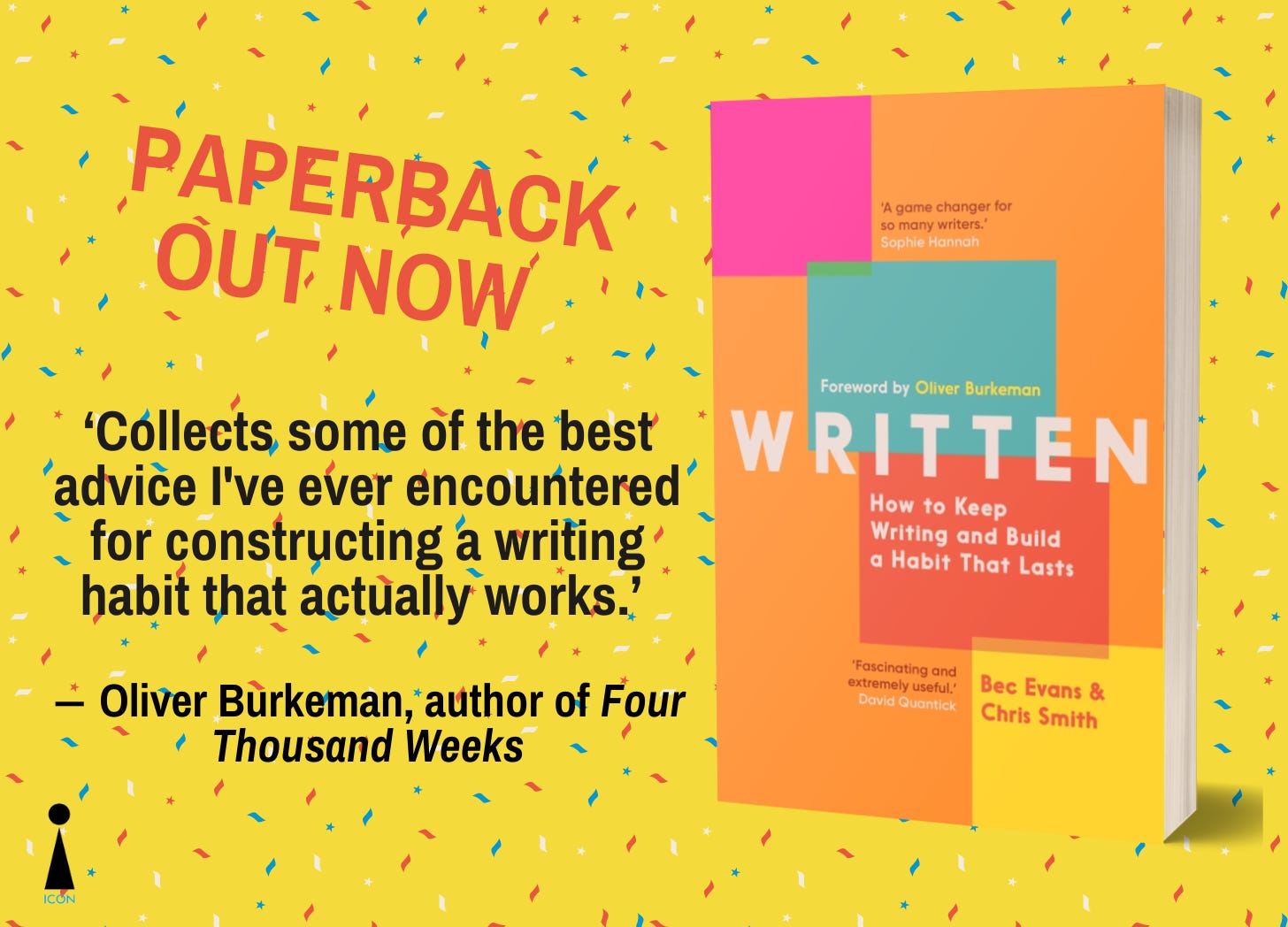The ‘good discomfort’ of keeping going
If mastery involves painful self-sacrifice, how do we ever motivate ourselves to keep going? Words of wisdom from Oliver Burkeman on finding 'good discomfort' when writing.
Hello writing friend
It’s the last day of January, the fresh start month that feels distinctly stale by its closing hours. Before we say goodbye and good riddance, it’s time to wrap up this month’s theme of ‘mastery’ - the final chapter of our book Written that explores how we become better writers with deliberate practice.
You can read previous posts, Target practice: what Luke Littler's darts success teaches us about writing, It ain’t what you do it’s the way that you do it, and Focus on practice not output.
Unfortunately, the message behind mastery is rather painful. K. Anders Ericsson, the psychologist behind deliberate practice, saw the path to expertise as being high on effort and low on enjoyment. He wrote:
“This is a fundamental truth about any sort of practice: If you never push yourself beyond your comfort zone, you will never improve.”
K. Anders Ericsson
Yes, but there lies the problem
Research shows that we change best by feeling good, not by feeling bad. So that leaves us with a conundrum: if long-term habits are formed by feeling good, do we risk them by leaning into the discomfort of practice?
Central to the idea of self development, is that growth happens just beyond the limits of what we are capable of. This means that learning a new skill, or developing an existing one, involves getting out of your comfort zone.
Get in the zone
The comfort zone is a place of safety, it’s nice there - perhaps a little boring, but essential for our survival. The opposite of the comfort zone, according to the NHS, is a zone of panic, which is a terrifying spot where we are too overwhelmed to do anything.
Sitting between these two is the zone of discomfort. It might sound a tad painful, and it will prove to be scary at times, but it puts us in a position to develop as writers.
Find your good discomfort
Oliver Burkeman told me1 about the concept of ‘good discomfort’ which has been helpful as I figure out how to keep writing. He advised that we trust ourselves to be able to handle it. We might be grouchy, but that’s because the nature of writing or creative work is that it feels difficult. He said:
“We think that if we really knew what we were doing, it would feel totally lovely to be doing it. We’d be in a constant state of flow and therefore, if that’s not how it feels, well, we must have writer’s block. We must just not have the skills that we need to write.
You get into this double-bind where writing feels like a problem, which it is, but it also feels like it’s a problem that it feels like a problem, which it isn’t.
It’s uncomfortable, but you can totally handle that discomfort. You don’t need to try to power through it and make it go away. You can just say, ‘Okay, I feel reluctant about doing this. I didn’t particularly want to do it. It feels difficult and I’m going to do it at the same time.’”
Oliver Burkeman
So, when you catch yourself in the discomfort zone, by all means get grouchy but sit with those feelings for a moment. Feel that difficulty, become curious by the challenge, if possible you could see it as reassurance that you are doing something creative. Then keep going.
You’ve got this, Bec
Link round up
Before we get to January’s links, here’s a mnemonic from beloved UK poet Brian Bilston, shared on Instagram. Find his latest books on his website.
Mnemonic
Thirty days has September
April, June and November.
Unless a leap year is its fate,
February has twenty-eight.
All the rest have three days more,
excepting January,
which has six thousand,
one hundred and eighty-four.
~Brian Bilston
Links from us
Back in the early days of January, Bec had fun talking about New Year’s resolutions with Andrew Keen on his podcast, Turning writing into a habit that lasts.
We ran a workshop for Reedsy on ‘Writing Productivity in 2024: From Resolution to Habit. You can watch it on the Reedsy YouTube Channel or read the transcript online.
Our workshop with The London Writers Salon is available to members, do check out their Writers’ Hour and if you’d like to hear us being interviewed by Parul & Matt last year, listen to the podcast How To Overcome Creative Blocks & Get It Written.
Finally, Bec wrote an article for The Bookseller on why Author productivity is a publishing problem.
Links from others
Cal Newport wrote a great piece On Slow Writing. I cannot wait to get my hands on his new book, Slow Productivity The Lost Art of Accomplishment Without Burnout.
Katherine May wrote How I start a new book and shared ten ways to keep your writing sustainable, orderly and sane. I love her idea of ‘lame goals’.
Does writer’s block actually exist? A guest post on Emma Gannon’s The Hyphen by Alice Vincent.
Available from Amazon and all good bookshops.
If you’d like some more wisdom from Oliver Burkeman, check out The perfect routine doesn’t exist: imperfect advice from Oliver Burkeman, which was based on our interview with him last year - you can watch the video and read the transcript and find links to previous blogs and his books.










Also looking forward to Slow Productivity - already gulped down the pre order bonuses!
And HOW did I miss this interview with Oliver Burkman 🤯
Love the advice here. I've come to the conclusion that there are sometimes no other ways around something other than through it. The mistake I always make is presenting something as a "must-do" rather than a "just-do". January has been very illuminating as I've kicked this practice into gear.